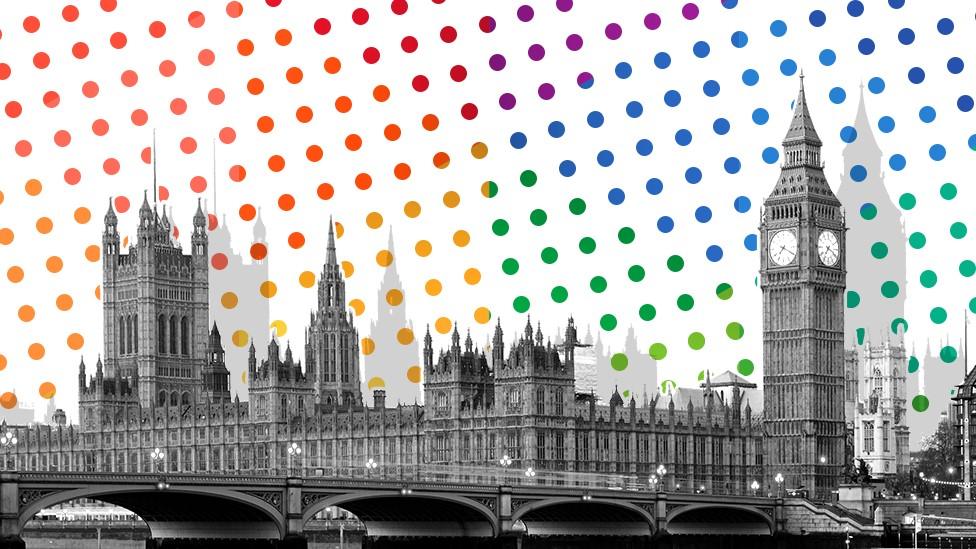Plaid Cymru manifesto 2019: 11 key policies explained
- Published
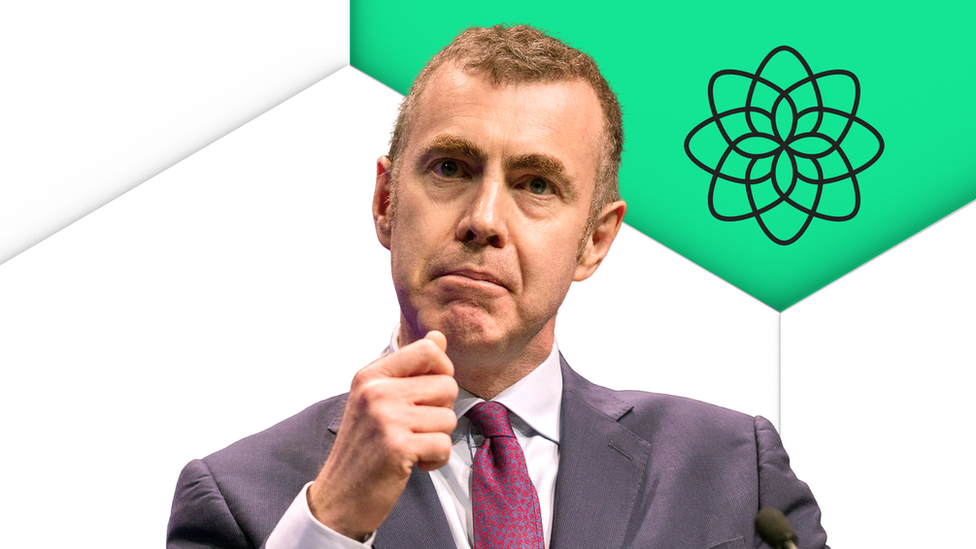
Plaid Cymru has launched its 2019 manifesto,, external called Wales, It's Us. It sets out the policies it wants to see introduced by the next UK government.
The document calls for Wales to stay in the European Union and puts forwards its key aims for Wales under the banner "Westminster does not work for Wales".
But what are the promises being made in a bid to win over voters on polling day, 12 December?
1. Back a second EU referendum
A people's vote on Brexit and campaigning to remain in the EU.

In September 2019, Plaid Cymru leader Adam Price called on his party to campaign to cancel Brexit in a general election without the need for a second referendum. Weeks later, the party's position shifted.
Party members voted to support a second EU referendum, unless faced with the prospect of a no-deal Brexit, in which case Plaid would revert to unilateral revocation of the Article 50 Brexit process.
In a bid to return as many pro-Remain MPs to Westminster, Plaid Cymru has struck an electoral pact with the Liberal Democrats and the Greens, but is not standing aside for Labour candidates, despite Jeremy Corbyn's promise of a second EU referendum.
That decision could make a difference in key Labour-Conservative marginal seats and, if that in turn helps Boris Johnson secure a majority in the House of Commons, then it's curtains for a second EU referendum.
Plaid promises to "make our own Wales"
2. Spend £20bn on 'green jobs revolution'
Create tens of thousands highly skilled "green collar jobs" to fight climate change.

Plaid Cymru is promising a £15bn Welsh Green Jobs Revolution paid for by the UK government increasing capital investment for 10 years and Wales getting its share of that. It would also ask the Treasury to allow the Welsh Government to borrow £5bn and use both funding sources pay for "tens of thousands" of new green jobs.
Plaid Cymru promises publicly-owned full fibre broadband by 2025 - five years earlier than Labour - and said it would build 20,000 green social homes and spend £5bn making homes more energy efficient and reduce fuel poverty.


Hybrid electric and diesel trains that run from London to Wales
3. Electrify Wales' main rail lines by 2030
South Wales Valleys electrification would be completed, followed by the north Wales coast line.

Many in the rail industry think it was a mistake to emphasise shorter journey times as the main benefit of electrification, which is expensive. It left some wondering whether spending billions to save minutes on journeys was value for money.
But electrification allows bigger trains to be run on lines. They can be more frequent and more reliable. The trains themselves are more environmentally friendly and more travellers might be encouraged to use public transport rather than cars.
Businesses have long pushed for rail electrification in areas where demand justifies the cost. As with all major infrastructure projects, electrification requires a skilled workforce which will mean overcoming the current skill shortages.
4. Free social care at the point of need
Extra investment in early intervention and preventative health care.

Unlike the healthcare on the NHS, social care is not usually free. At the moment some people aged 65 and over will get help towards their costs, but others can pay in full. And social care is delivered by a mixture of bodies - councils, private bodies and third sector organisations.
This policy was one recommended by a commission set up by Plaid Cymru to think about radical solutions to a growing problem - an ageing population. It estimated the cost of the policy would be an extra £247m a year, which it described as "eminently affordable. But the truth is nobody really knows at what the final price tag would be.
In a report commissioned by the Welsh Government last year, economist Gerry Holtham suggested an income tax of between 1% and 3% could be used to fund elderly social care in Wales. What's clear is having adequate social care is important for the future of the NHS, as when care is lacking people end up in hospital - increasing the strain on a health service that's already struggling.


5. Reform drug laws
Establish a national commission to examine changing legislation on drug dependency.

Plaid Cymru says the current hard-line approach to drugs isn't working. They say it criminalises those with an addiction, a medical need, or recreational users who "do no harm to others". The party is not saying it would definitely decriminalise drugs, as has happened in Portugal. Instead, it proposes a commission to reform drug laws.
It also wants a public health focus to dissuade people from taking drugs, to get addicts treated and find solutions to the problems that led them to drugs in the first place. The party says that would leave police free to tackle those who profit from the drugs trade.

CONFUSED? Our simple election guide, external
POLICY GUIDE: Who should I vote for?, external
BREXIT: Where do the parties stand?

6. Pay £35 a week to low-income children
To fund a £25 a week tax credit for those paying more than 30% of their income on rent and utility bills.

In the past decade, Welsh Labour governments signed up to ambitious targets to eliminate child poverty - but the ambition proved too difficult. In May this year, research by charities found Wales was the only UK nation to see an increase in child poverty last year.
Now Plaid says it will introduce new legally-binding targets. As a step towards meeting them, it would pay £35 a week to every child in a low-income family. There would also be a tax credit of up to £25 a week for tenants in the private sector who spend more than 30% of their income on rent.
7. £300m a year for education
The money would be made available for Welsh schools and colleges.

Plaid Cymru says schools are facing a "funding emergency" and many people working in classrooms would agree. Education is devolved, so Plaid is setting out its stall on education here rather than putting forward a plan that could be implemented at Westminster.
An extra £300m a year for schools and colleges seems a healthy increase. But how healthy depends on the benchmark. Day-to-day spending on schools this year is £2.6bn. An extra £300m a year would make a dent in real terms spending cuts of 6% over the past decade.
But Plaid's pledge includes money for colleges too, which come from a different pot, as does capital spending. The party says some of that £300m a year would go towards school buildings, including new Welsh medium schools.

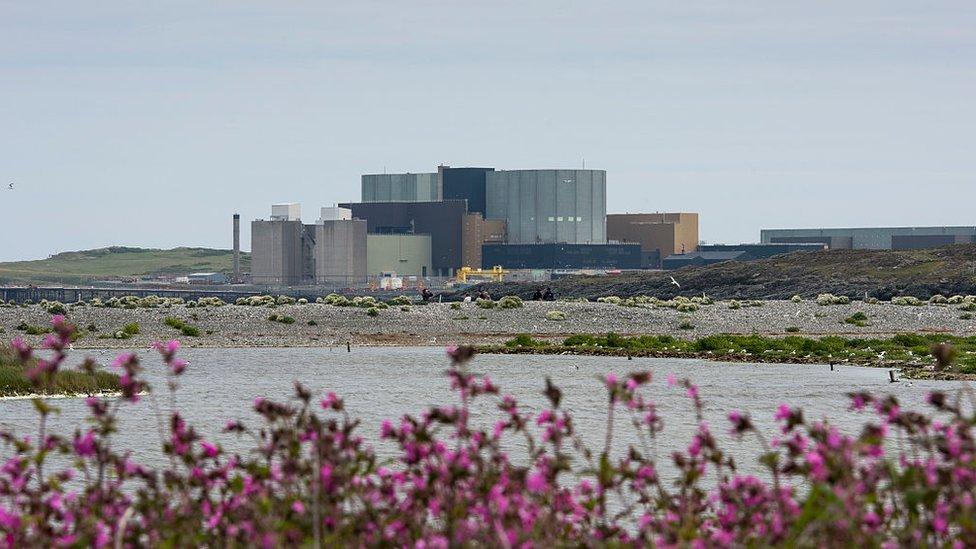
Wylfa shut at the end of 2015 - plans for its replacement have stalled
8. Oppose new nuclear sites
To oppose the development of new sites for nuclear power plants.

This has always been a tricky area for Plaid Cymru. Though they oppose nuclear power on principle, some in the party haven't wanted to turn away the jobs and investment promised by the proposed replacement of the Wylfa plant on Anglesey - the island seat is one of their top targets.
Notice that this policy still gives them the wriggle room to potentially support the redevelopment of existing sites. Having said that, in the race for leadership of the party, Adam Price said a new nuclear plant would be an "enormous burden" that would be incompatible with Welsh independence.
9. Recruit 1,600 police officers
The target represents two additional officers per community.

The challenge for any police force is the loud cry from Joe Public that they want to see more bobbies on the beat. It's a security thing. People feel safer if there's a visible deterrent. So Plaid Cymru's offer of 1,600 more officers in Wales - two per community - will be popular.
Though it is probably on a par with the numbers the Conservatives have already pledged for Wales over the next three years. It's worth remembering more crime is detected, prevented and solved from an office. But with the cuts forces have faced over the past 10 years, any increase, regardless of where, would be welcomed.
What does devolution mean for voters?
10. Devolve taxation powers
Powers on corporation tax, air passenger duty and VAT for Wales.

The Welsh Government has powers over some taxation, but Plaid Cymru wants more to ensure taxation raises the money Wales needs. It wants VAT revenues generated in Wales to remain there and for air passenger duty to be devolved, as happens in Scotland.
It also wants Wales to have powers over corporation tax and, like the Conservatives, Plaid Cymru wants to put on hold the planned cut in corporation tax from 19% to 17% for 2020-21. The party also argues the employee rate of National Insurance should rise from 2% to 4% for high earners.
11. Give devolved parliaments a say on wars
Decisions to go to war should require support of all four UK nations.

Issues of defence and war are the responsibility of politicians in Westminster - there is no role at all for the Welsh assembly, Northern Irish assembly or Scottish parliament. Technically speaking, there isn't even a legal requirement for the prime minister to secure the support of MPs before launching military action.
However, since Tony Blair's Labour government asked MPs in March 2003 to approve the Iraq invasion, a convention has developed - although not always followed - to consult the UK Parliament. But calls to formalise the UK Parliament's role haven't gone further than the drawing board, let alone include discussion of a role for the devolved assemblies and parliament.
To find out more read our simple guide to Plaid Cymru

What do the other parties offer?

What are the parties promising you?
Here's a concise guide to where the parties stand on key issues such as Brexit, education and the NHS.
- Published30 October 2019

- Published7 November 2019
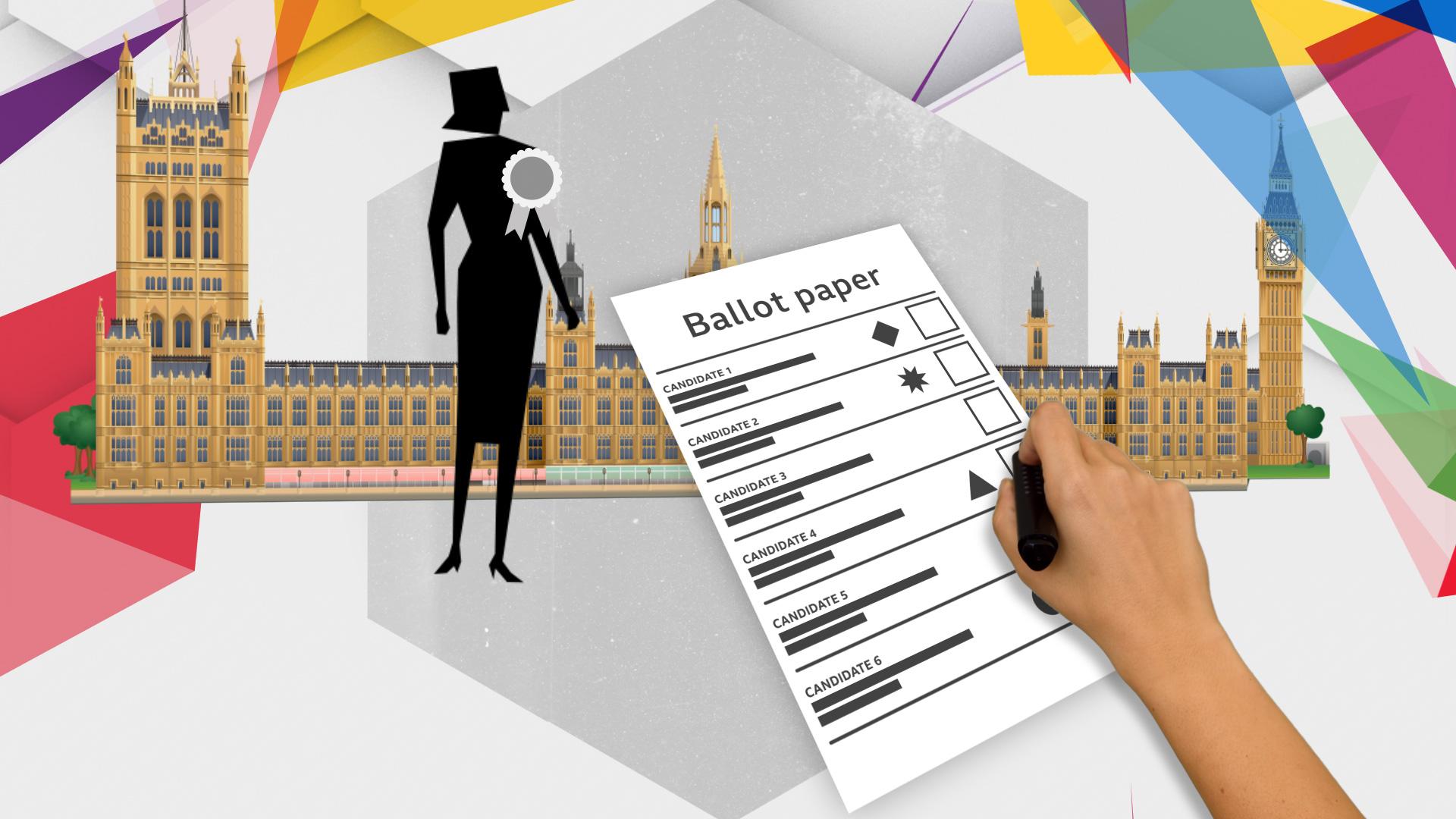
- Published15 November 2019
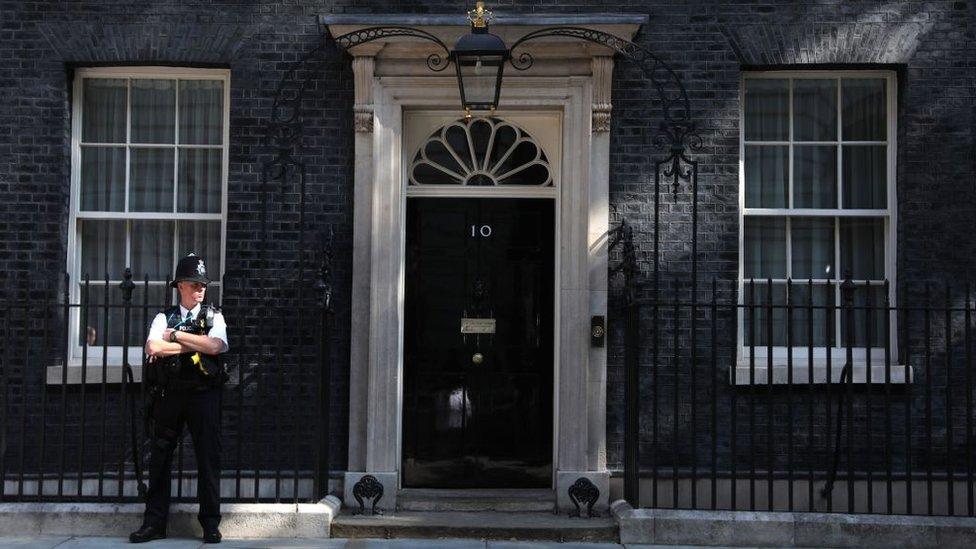
- Published6 December 2019
